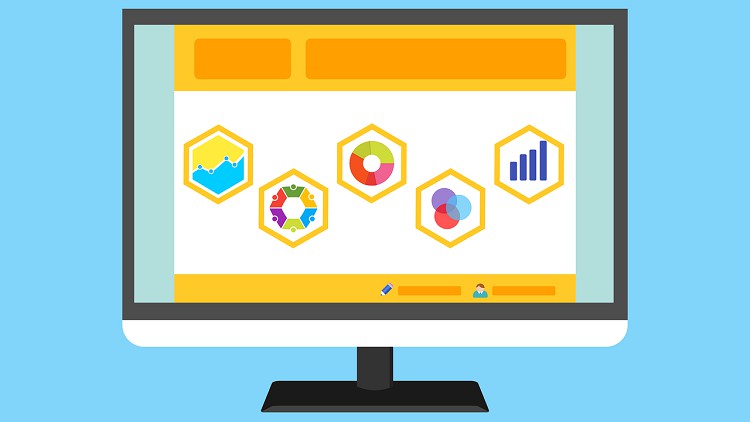
Learn the basics of angular and all about components, data binding, events, forms, routing and so much more!
What you will learn
Learn all about frameworks and how to set up the development environment needed to create your angular projects.
Then we’ll move on to installing Typescript and Angular, because you need Typescript to run Angular.
Later, we’ll play with the default output you end up with in the Angular CLI.
We’ll learn how to manipulate the output, and how to clean up the files to allow room for our project to blossom.
We’ll learn all about components and how to create and use them.
We’ll also learn about data binding/interpolation, how to use use dynamic properties, numbers, strings, arrays and objects in HTML
Description
Angular is one of the 2 most popular front end web frameworks out there. Developed by Google, knowledge in this framework is granted to land you great jobs and freelancing projects.
Some of the biggest websites out there were developed in Angular, and in this course, you’ll learn all using Angular in your projects.
What will you learn in this course:
1. Learn all about frameworks and how to set up the development environment needed to create your angular projects.
2. Then we’ll move on to installing Typescript and Angular, because you need Typescript to run Angular.
3. Later, we’ll play with the default output you end up with in the Angular CLI. We’ll learn how to manipulate the output, and how to clean up the files to allow room for our project to blossom.
4. We’ll learn all about components and how to create and use them.
5. We’ll also learn about data binding/interpolation, how to use use dynamic properties, numbers, strings, arrays and objects in HTML to allow for reactivity and automatic changes in the website view.
6. Then, we’ll learn about events, and how to make your app react to various user-based events, including click-based events, mouse events, keyboard events and so much more.
7. We’ll continue on from events by looking at structural directives like NgIf and NgFor to allow for conditional HTML rendering, and automated rendering of multiple elements with just a few lines of code.
8. Then, we’ll learn about forms, how to create them, how to do 2-way data binding in them, and so much more.
9. We’ll finish off the course with a thorough look into what routing is, why we need routing in frameworks, especially Angular, and how to create routes for your web applications.
Who is this course for?
1. JavaScript developers who want to take their web development skills to the next level.
2. React or Vue developers who’d like to add yet another framework to their skillset.
This course will lay a solid foundation for Angular, and will equip you in your journey in becoming an Angular expert.
Content